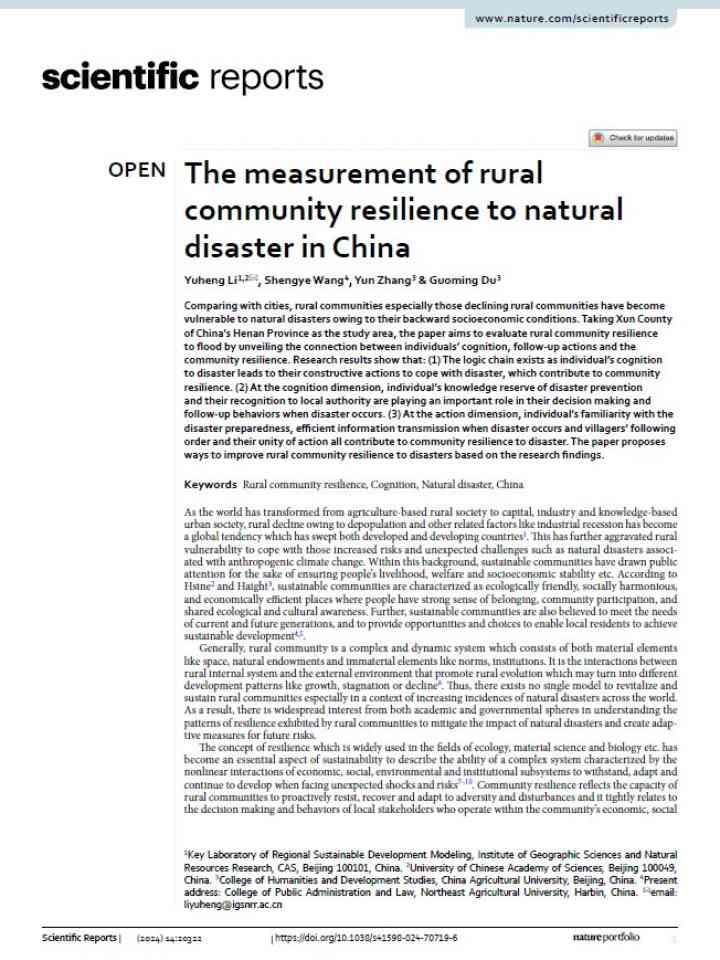The measurement of rural community resilience to natural disaster in China
Taking Xun County of China’s Henan Province as the study area, the paper aims to evaluate rural community resilience to flood by unveiling the connection between individuals’ cognition, follow-up actions and the community resilience. Comparing with cities, rural communities especially those declining rural communities have become vulnerable to natural disasters owing to their backward socioeconomic conditions.
Research results show that: (1) The logic chain exists as individual’s cognition to disaster leads to their constructive actions to cope with disaster, which contribute to community resilience. (2) At the cognition dimension, individual’s knowledge reserve of disaster prevention and their recognition to local authority are playing an important role in their decision making and follow-up behaviors when disaster occurs. (3) At the action dimension, individual’s familiarity with the disaster preparedness, efficient information transmission when disaster occurs and villagers’ following order and their unity of action all contribute to community resilience to disaster. The paper proposes ways to improve rural community resilience to disasters based on the research findings.
Explore further
